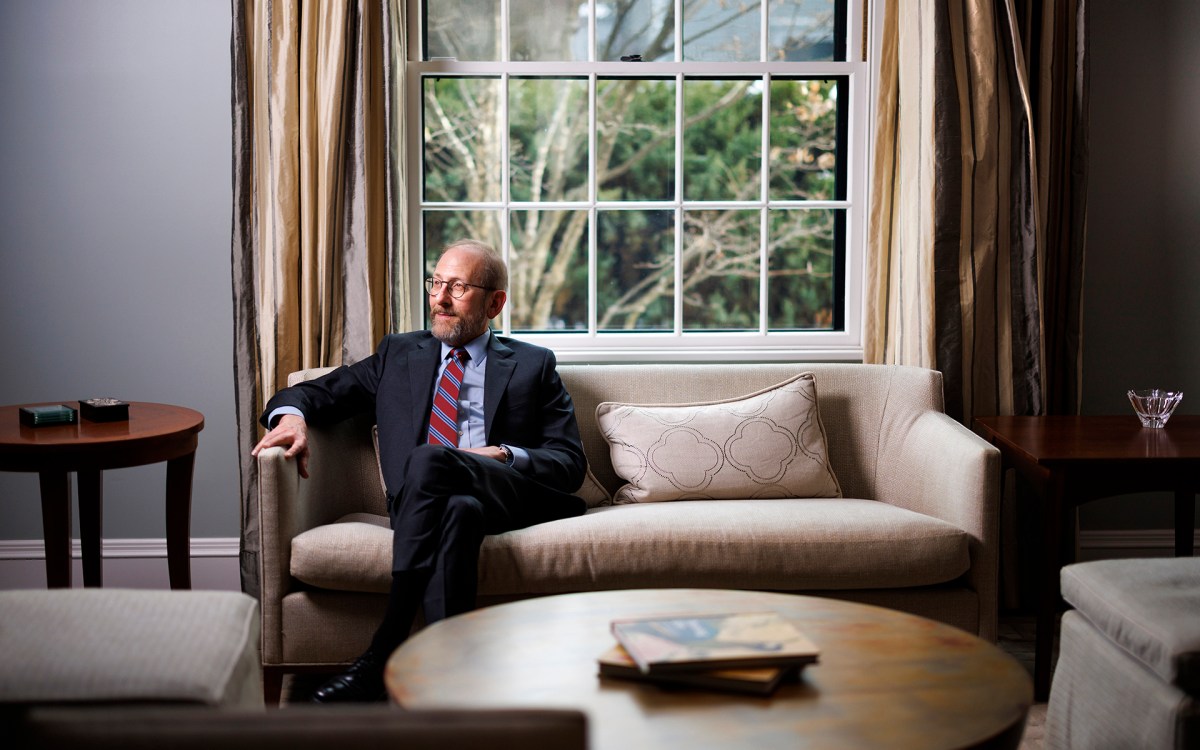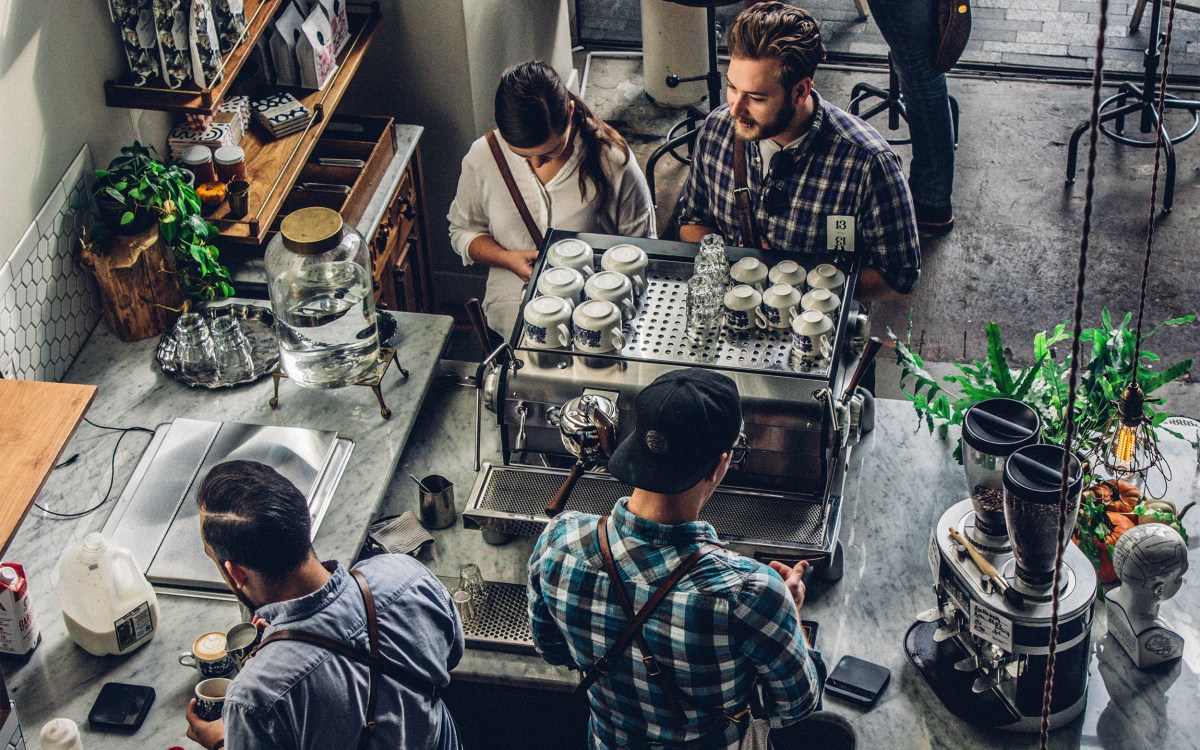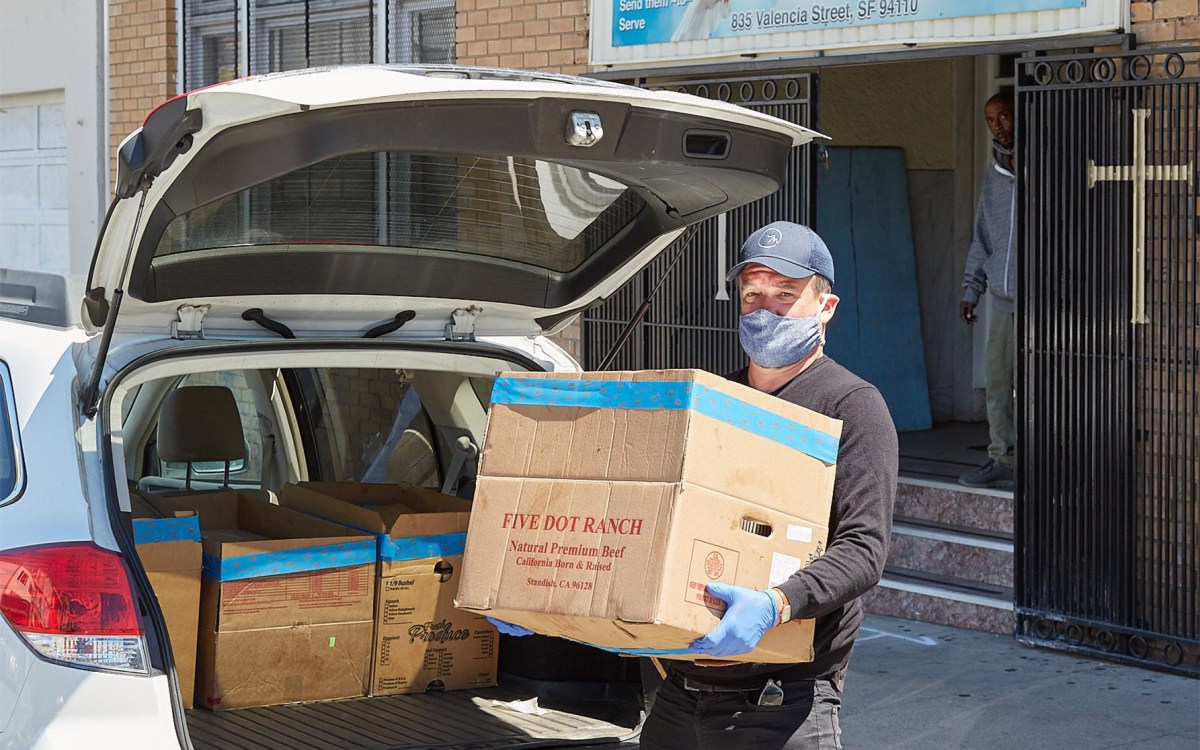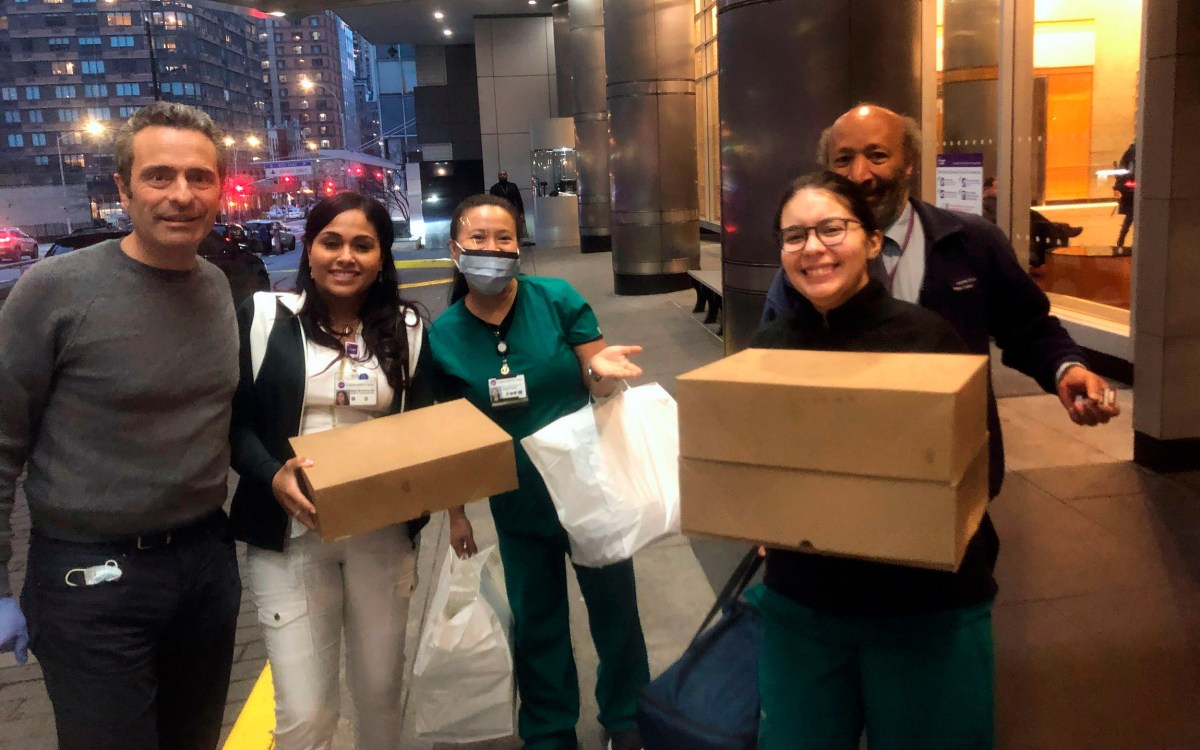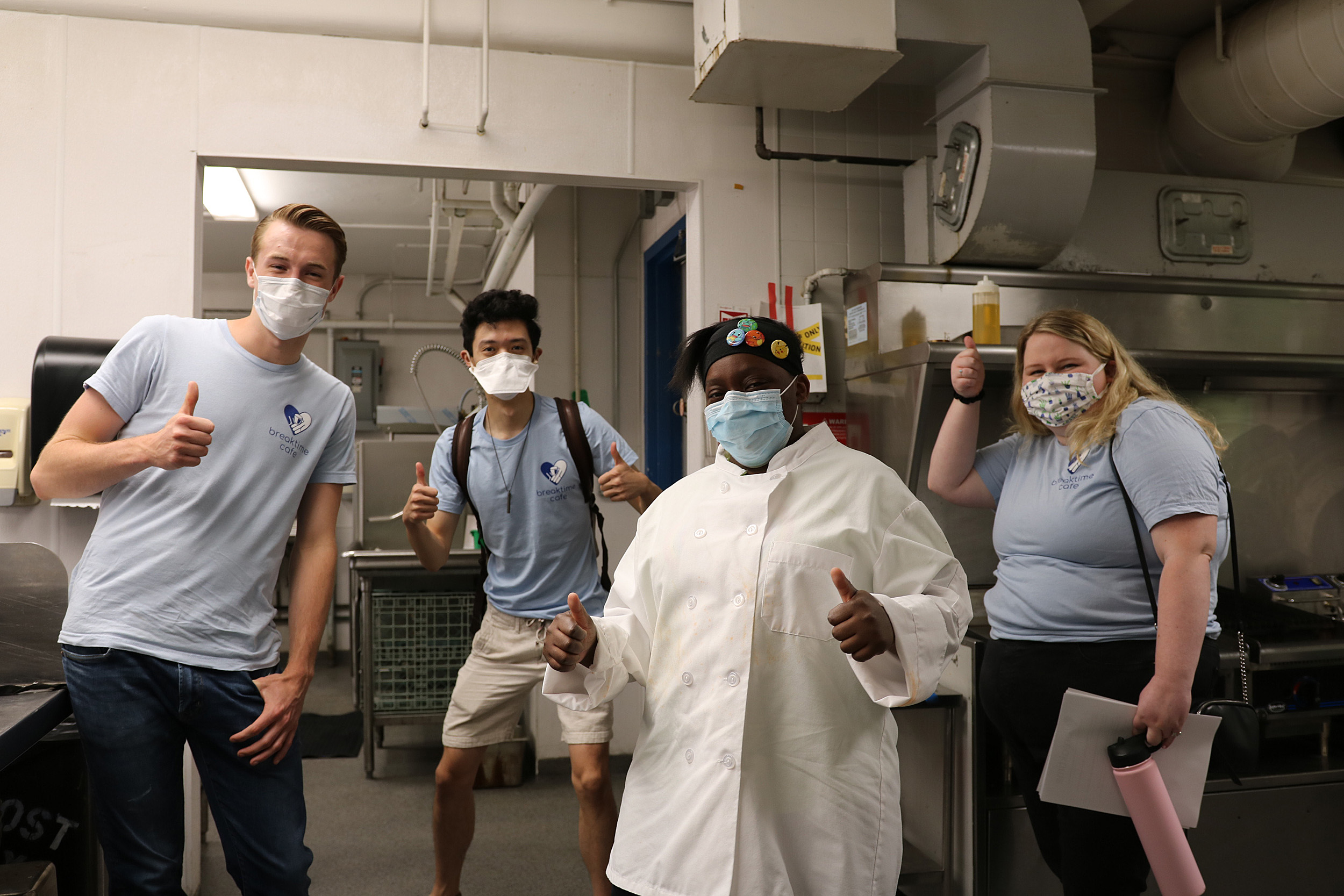
(From left) Connor Schoen, Tony Shu, Amina Johnson, and Laura Skinner. Johnson is one of Breaktime’s first culinary associates and dreams of opening a bakery.
Photos courtesy of Breaktime
Serving up job training
Staffed by homeless youth, Breaktime Café prepares, delivers meals to vulnerable amid pandemic
Connor Schoen and Tony Shu were just weeks away from opening Breaktime Cafe, their job-training initiative for youth experiencing homelessness, when the pandemic hit. They knew they had to do something fast or risk having their whole idea fall apart.
“In the beginning, when it became evident that the cafe was not going to be open in May, we were grappling with unknowns,” Shu said. “It took us a while and a lot of reflection to realize that sometimes you have to be able to let go. Letting go temporarily allows your eyes to open to see what other needs are out there.”
So Schoen ’20 and Shu ’21, who met as first-years while volunteering at Harvard Square’s youth homeless shelter, Y2Y, came up with a creative solution. Instead of learning about the food business through a cafe, program participants could run a service that produced and delivered meals to organizations and families across the state whose members were homeless, disabled, senior citizens, or impacted by the coronavirus. With the support of the Social Innovation and Change Initiative at Harvard Kennedy School, where Schoen and Shu were 2019 Cheng Fellows, they were able to clearly define the social impact they wanted to have, and adapt their model given the changing environment.
In April, Breaktime opened up 10 spots for young people experiencing homelessness and launched the meal-delivery service. Five months later, it has provided more than 30,000 meals to communities in need.
According to Schoen and Shu, the service has a “double impact”: providing jobs and supporting the vulnerable.
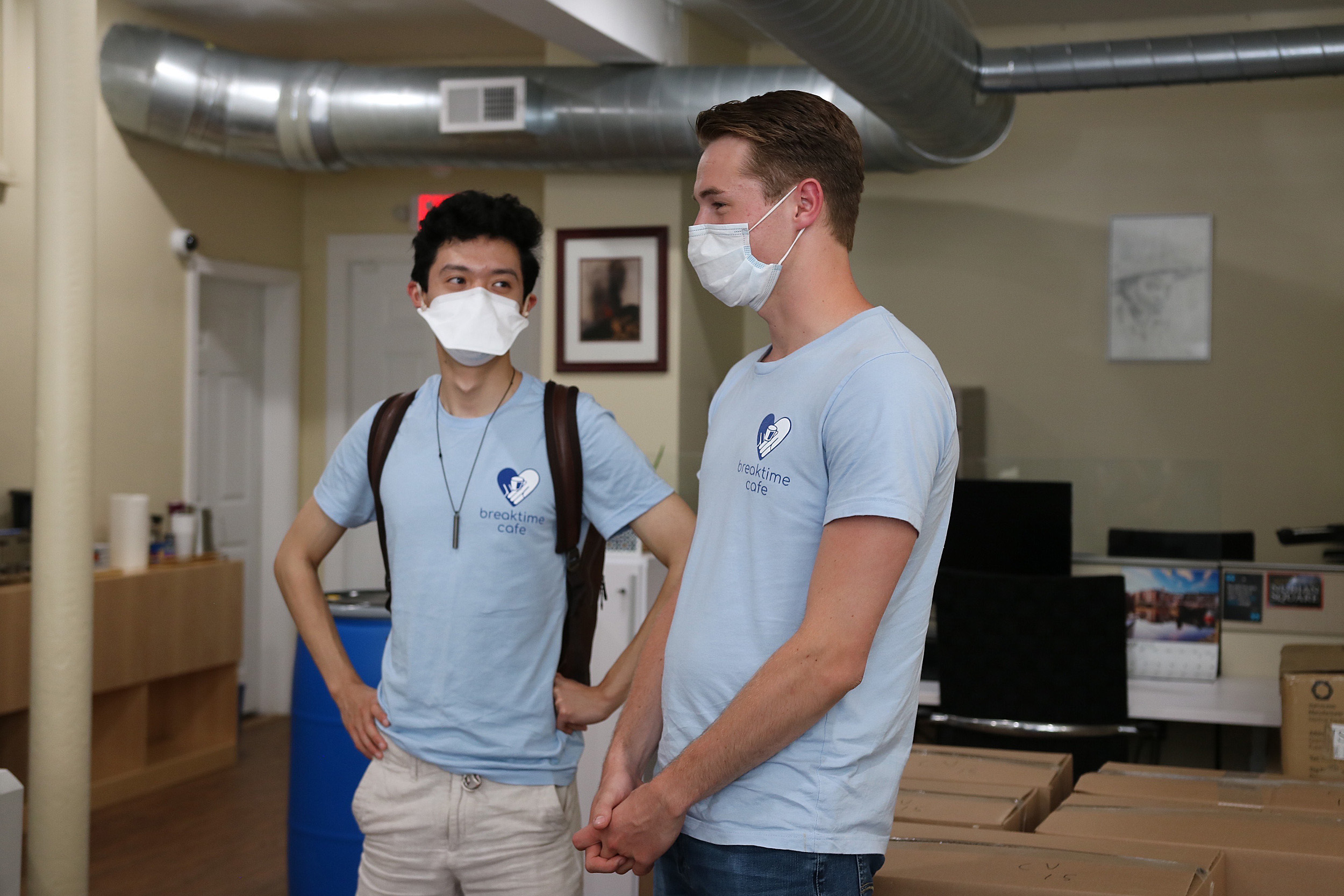
“It’s so easy to feel powerless right now and it’s really inspiring to see how [our employees] really jumped into action,” Schoen said. “We’ve been heartened to hear that they’ve found a lot of meaning and purpose through this work.”
Breaktime partners with Community Works Service — the landlord for Breaktime’s facility at 170 Portland St. in Boston — which serves as the wholesale provider for the cafe and trains program participants in food preparation. Breaktime also received funding from City of Boston to ensure that it could continue to produce meals through the summer.
Breaktime develops and adapts the menus with the head chef of Community Works Service. Their goal is to create healthy meals at a reasonable cost with ingredients that are readily available. Offerings include meat or a meat substitute, fruit and vegetables, and a carb. They try to avoid major allergens, and 30 percent of meals are vegetarian.
“We understand that to get from farm to kitchen to someone’s doorstep, there’s a lot of steps to get there,” Schoen said.
“It was only from letting go of this intense attachment to this one project that we were able to see that our model can be translatable to a lot of different areas.”
Tony Shu
A set ordering schedule is prepared at the end of each week for the following week and responds to what was submitted the previous week. Meal sites include Boston Resiliency Fund, the Cape Verdean Association of Boston, Jewish Family Services, Project Hope, Sojourner House, and the Nazareth Center.
In May, more than 60 residents of Huntington House Shelter were displaced after a fire broke out at the YMCA at 316 Huntington Ave. in Boston. In response, Breaktime quickly ramped up its production to serve 500 meals to that same site for the whole weekend.
Besides meal delivery, the organization offers cleaning and sanitization services, and mask production for local business and offices that are reopening.
“Without trying to recreate the wheel, we can work with existing programs to grow them,” Shu said. “It was only from letting go of this intense attachment to this one project that we were able to see that our model can be translatable to a lot of different areas.”
